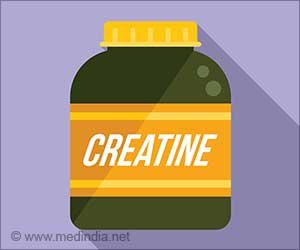Creatine’s Potential in Post-COVID Recovery

Naturally produced in the human body, primarily in the liver, creatine plays a pivotal role in generating energy during high-intensity, short-duration activities. While it is fundamentally crucial for muscle health, its importance in brain function is becoming increasingly evident. This connection between creatine and cognitive health makes it a viable candidate for exploring its therapeutic effects on various health conditions.
is a concerning aftermath of the viral infection. Many patients, even after recovering from the primary symptoms of the virus, find themselves battling a range of debilitating symptoms like extreme fatigue, difficulty concentrating, body aches, and more. The persistent nature of these symptoms is alarming and significantly impacts the quality of life of the sufferers.
Against this backdrop, a recent study published in Food Science & Nutrition investigated the effects of creatine supplements on individuals diagnosed with post-COVID-19 fatigue syndrome. This exploratory research involved 12 participants who were divided into two groups. One group received a placebo, while the other was administered 4 grams of creatine monohydrate daily for half a year.
Advertisement
The results were promising. By the 3-month mark, there was a significant elevation in creatine levels not just in the leg muscles but also in the brain. More importantly, there was a marked reduction in general fatigue levels among those taking the supplement. By the end of the 6 months, those on the creatine supplement also showcased an improvement in several debilitating symptoms associated with post-COVID-19 fatigue syndrome, ranging from issues like a loss of taste and breathing difficulties to body aches and headaches.
Creatine’s Potential for Post COVID-19 Recovery
Sergej M. Ostojic, M.D., Ph.D., of the University of Novi Sad in Serbia and the corresponding author of the study, highlighted the potential significance of these findings. He remarked, “Endorsing creatine might be of great importance in tackling this prevalent condition.” However, he also prudently noted the necessity for further research, stating, “Additional studies are warranted to confirm our findings in various post-COVID-19 cohorts.”
While the study offers hope, it is essential to approach it with a balanced perspective. This research is preliminary, and while the results are encouraging, larger and more diverse studies are necessary to solidify these findings.
The potential therapeutic benefits of creatine might be an exciting avenue for those affected by post-COVID-19 fatigue syndrome. However, as with any supplement, it’s essential to consult a medical professional before making it a part of one’s daily regimen.
With the world still navigating the myriad challenges posed by COVID-19 and its after-effects, such research shines a ray of hope. If further studies reinforce the findings of Dr. Ostojic’s team, creatine might just emerge as a formidable ally in our battle against the lingering shadows of this global pandemic.
Reference :
- Effects of six-month creatine supplementation on patient- and clinician-reported outcomes, and tissue creatine levels in patients with post-COVID-19 fatigue syndrome – (https:onlinelibrary.wiley.com/doi/10.1002/fsn3.3597)
Source: Medindia
Source link
#Creatines #Potential #PostCOVID #Recovery



